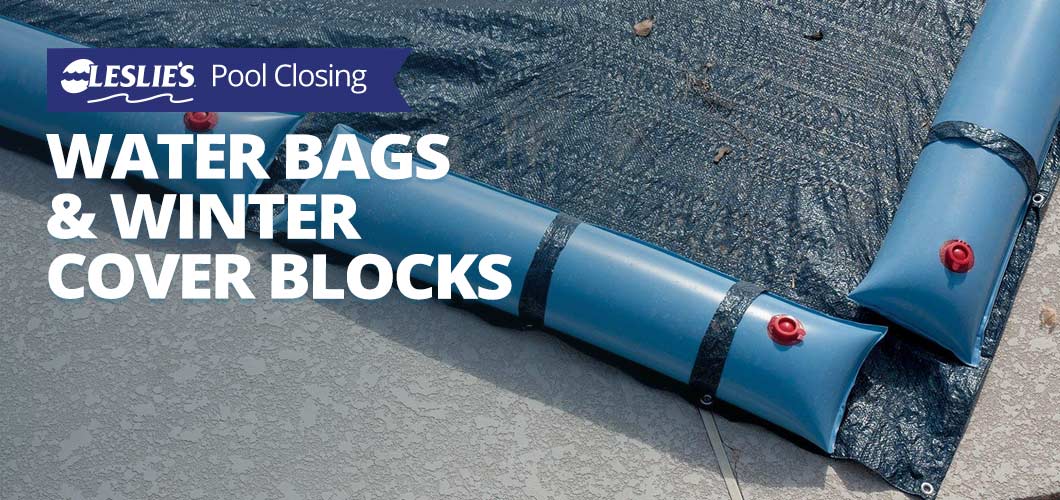
Water Bags & Winter Cover Blocks
Winter is coming, and it’s time to unroll that winter pool cover! But how do you keep it from blowing away or allowing debris to slip into your pool? For years, that job has been the sole purview of water bags. But with the advent of winter cover blocks, that’s all beginning to change.
What's a Water Bag?
For safety and security, water bags keep pool covers from shifting or flying open when it’s too cold to use your pool on a regular basis. Whereas bricks or other stone blocks can damage your cover — and introduce other hazards — water bags safely keep your winter cover from blowing open when the wind and rain start sweeping in.
Historically, the downside to water bags has been leakage. While reasonably durable when left alone, water bags tend to attract curious critters who will nibble away at the bags until holes begin to appear and water starts to leak out. They're also susceptible to damage from UV rays and failure from overfilling. As you can imagine, a water bag without water isn’t particularly useful! Tears and holes can be temporarily fixed with a dab of silicone or a vinyl patch kit, but those are just added expenses.
The problem with leakage has been somewhat stymied by the creation of double water bags, which use two different water bags so that your cover stays secure, even if one of the two bags develops a leak. But additional problems remain. For example, when a water bag becomes frozen, it’s prone to rolling off the cover entirely, especially if it's not attached by cover straps. Double water bags are less likely to roll than single bags, but the possibility still remains. Are these simply minor annoyances every pool owner has to deal with, or is there a better way?
Enter, the Winter Cover Block
The introduction of the winter cover block has dramatically changed the way pool covers are secured. They’re effectively the same on a basic level. Water halfway fills the blocks (to allow for expansion later when they freeze). They're then placed along the perimeter of the pool cover, roughly 18 inches apart.
Where the winter cover blocks shine, however, is in their durability. Constructed of material four times thicker than standard water bags, they're effectively critter-proof and considerably longer-lasting. Say goodbye to rips and tears! Their flat, rectangular shape also means they won’t balloon and roll when frozen, keeping them locked in place all winter long.
Another added perk of winter cover blocks is how easy they are to store and reuse. When summer finally comes, winter cover blocks can be emptied of their water and neatly stacked together, keeping them safely stored until needed again.
Bag vs. Block
Water bags remain a reliable and practical solution to hold your pool cover in place, though winter cover blocks have clearly improved upon them in multiple ways. The primary factor in choosing one or the other will ultimately be cost. Winter cover blocks are a larger initial expense, while water bags remain an affordable alternative. The savings water bags provide are only in the short-term, however, as winter cover blocks will ultimately last longer and need to be replaced less frequently.
Whichever you choose, you can find a wide array of pool cover solutions at Leslie’s. And if you don't want to do it yourself, we have the expertise to help you in winterizing your pool. Our friendly, knowledgeable technicians are on-hand to help with winter pool services, or you can stop by your local Leslie's to have your questions answered in store.

